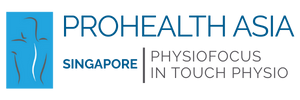Strength & Mobility: How Physiotherapy Helps You Age Gracefully
Aging is an inevitable process that brings about various physical changes, often leading to a decline in strength and mobility. These changes can hinder daily activities, reduce independence, and diminish overall quality of life. However, physiotherapy offers an effective solution for older adults seeking to maintain their strength and mobility, enabling them to age gracefully. This essay explores the role of physiotherapy in promoting physical health and well-being among seniors.
The Importance of Strength and Mobility
As people age, they may experience a natural decline in muscle mass, bone density, and joint flexibility. This decline can lead to frailty, increased risk of falls, and chronic conditions such as arthritis. Maintaining strength and mobility is crucial for preserving independence and preventing injuries. Engaging in regular physical activity not only enhances physical capabilities but also contributes to mental well-being, reducing feelings of isolation and depression often associated with aging.
Principles of Physiotherapy
Physiotherapy is a personalized approach to rehabilitation that focuses on improving physical function through targeted exercises, manual therapy, and education. For older adults, physical therapists assess individual needs and develop customized treatment plans aimed at enhancing strength, flexibility, and balance.
Exercise Therapy
Exercise is a fundamental component of physiotherapy for seniors. Tailored exercise programs often include:
Strength Training: Resistance exercises help build muscle strength, which is vital for daily activities such as climbing stairs and lifting objects
Balance Training: Balance exercises reduce the risk of falls, a significant concern for older adults. Activities like tai chi and stability exercises improve coordination and stability.
Flexibility Exercises: Stretching routines enhance joint flexibility, reducing stiffness and discomfort.
These exercises are designed to be safe and effective, accommodating the unique needs of older adults. Regular participation in these programs can lead to significant improvements in physical function and overall health.
Manual Therapy
In addition to exercise, physical therapists may employ manual therapy techniques to alleviate pain and improve mobility. Techniques such as joint mobilization and soft tissue manipulation can help reduce stiffness and enhance movement. By addressing pain and discomfort, manual therapy allows seniors to engage more fully in their exercise programs.
Education and Self-Management
An essential aspect of physiotherapy is patient education. Physical therapists empower individuals with knowledge about their bodies and the aging process. They teach seniors about the importance of maintaining an active lifestyle, proper body mechanics, and the benefits of ongoing exercise. This education fosters a sense of autonomy and encourages seniors to take an active role in their health.
Benefits of Physiotherapy for Aging Gracefully
The benefits of physiotherapy extend far beyond physical improvements. Seniors who participate in physiotherapy often experience enhanced quality of life, increased confidence, and greater social engagement. By maintaining strength and mobility, older adults can continue participating in activities they enjoy, from gardening to traveling, thus enhancing their overall well-being.
Moreover, physiotherapy can reduce the reliance on medications for pain management, which can have side effects and complications. By focusing on functional improvements, physiotherapy promotes long-term health and independence.

